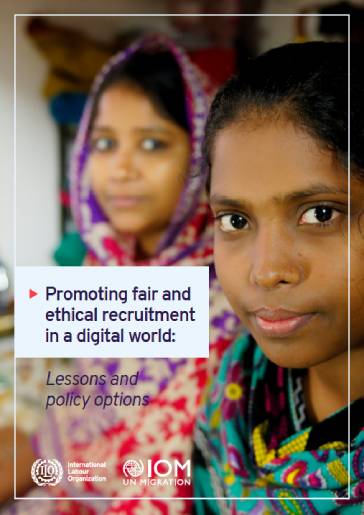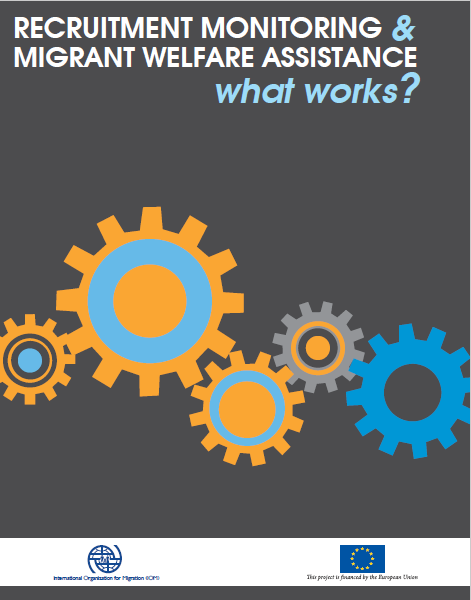Policy Brief on Practices and Regulations of Recruitment to Domestic Work
The policy brief highlights common recruitment practices and regulations observed along recruitment pathways to domestic work in India, Bangladesh, Nepal, Jordan and Lebanon.
The purpose of this policy brief is to respond to the rising interest in improving recruitment practices and regulations in order to reduce vulnerability to human trafficking and forced labour. In some cases, examples from other regions have been highlighted. Given the complexity of cross jurisdictional recruitment practices and regulation this brief presents common practices and regulations, pointing to where and how they can constitute better practices. The mapping and analysis are based on research and lessons learned from the ILO’s Work in Freedom Programme recruitment pilots within South Asia or from South Asia to the Middle East. There are two sections to this brief, first – describing common recruitment practices and regulations and second – giving examples of better recruitment practices and corresponding regulations.
Type of document :
Country/Region : , , , ,
Year of publication :
Theme : , , , ,
Promoting fair and ethical recruitment in a digital world
This joint report by the ILO and the International Organization for Migration (IOM) explores innovative state-facilitated digital technology platforms from four different contexts, with a focus on the Employment Permit System of the Republic of Korea, Musaned from the Kingdom of Saudi Arabia, eMigrate from the Republic of India and the European Network of Employment Services.
The study maps four examples of state-facilitated digital technology platforms that assist the recruitment, placement, and/or job matching for migrant workers. In reviewing some of the promising practices and lessons learnt, the study aims to offer preliminary guidance to States developing similar online applications and platforms, while also discussing possible approaches on how to best leverage new techniques and technologies, including blockchain technology. When designed and implemented in an inclusive way, these digital technology platforms have the potential to promote institutional transparency and fairness, and can reduce the costs of labour migration and limit the potential for collusion between private recruitment agencies.
Type of document :
Country/Region : , , , ,
Year of publication :
Theme : , ,
Recruitment Monitoring & Migrant Welfare Assistance: What Works?
As numbers of temporary labour migrants have rapidly increased over the past four decades, facilitating international migration has become a highly profitable and multi-faceted business. Human rights defenders, civil society organisations, journalists and academics have consistently exposed exploitation of migrants which occurs during recruitment processes. Abuses include high recruitment fees that lead to debt bondage, the processing of fake employment and immigration documents, confiscation of identity documents, and emotional and physical violence, or even trafficking for forced labour. On arriving in many destination countries migrants are left unprotected and vulnerable to more exploitation.
This study, conducted by an international research team between January and April 2014, reviews existing recruitment monitoring mechanisms and migrants’ access to rights and welfare assistance across Colombo Process Member States (Afghanistan, Bangladesh, China, India, Indonesia, Nepal, Pakistan, the Philippines, Sri Lanka, Thailand and Viet Nam), and key destination states (Bahrain, Kuwait, Oman, Qatar, Saudi Arabia, UAE and Yemen). With analysis presented thematically, the report concludes with a series of recommendations for Colombo Process governments.
Type of document :
Country/Region : , , , , , , , , , , , , , , , ,
Year of publication :
Theme : , , ,
Subscribe to the Fair Recruitment Initiative Newsletter
Sign up to receive news delivered to your inbox.



